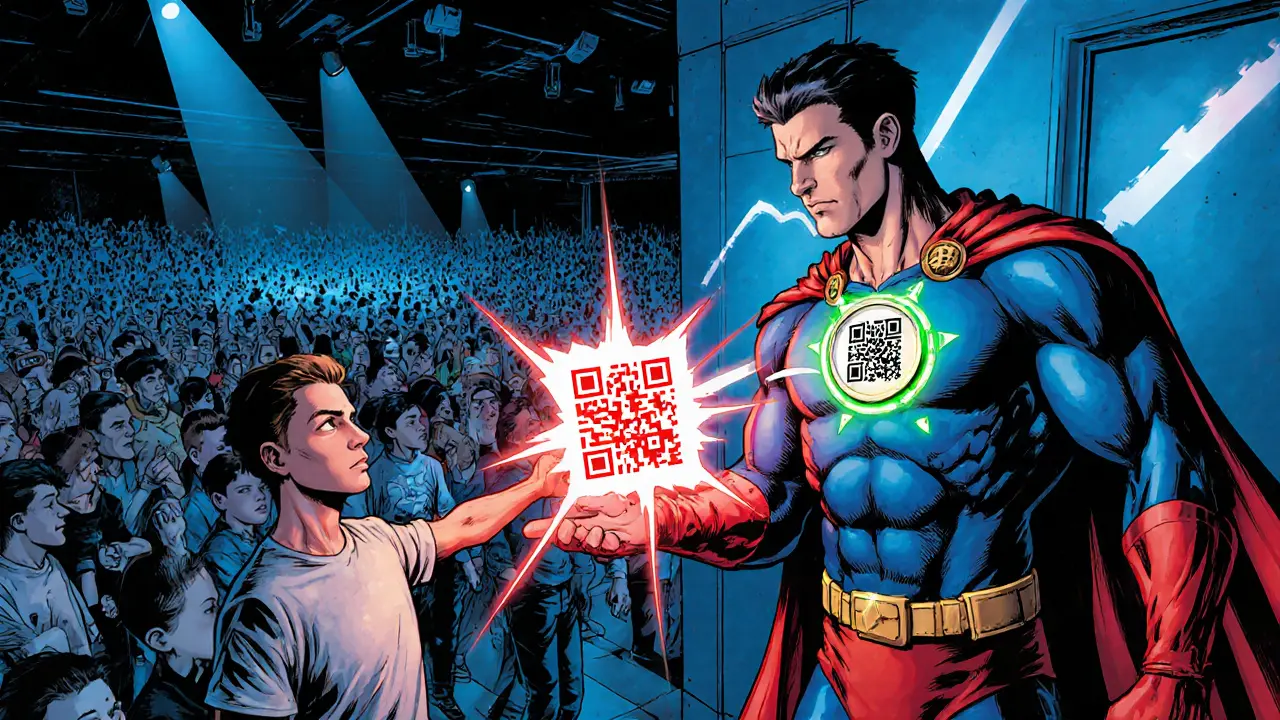When working with blockchain tickets, digital event passes recorded on a public ledger that can’t be forged or duplicated. Also known as tokenized tickets, they let organizers cut out middlemen, lock in real‑time resale rules, and give buyers proof of ownership.
One way organizers boost early‑buyer interest is through a crypto airdrop, a free distribution of tokens that can serve as a reward or entry ticket for a future event. This incentive creates a community of holders who are already invested in the event ecosystem, making it easier to sell out shows before the door even opens. The airdrop model also showcases how blockchain tickets can be bundled with other crypto assets, turning a simple admission pass into a multifaceted digital collectible.
To actually move or trade these tickets, many users turn to a decentralized exchange, a peer‑to‑peer platform where tokenized tickets can be swapped without a central authority. Because the tickets live on a smart‑contract, the exchange can enforce resale caps, royalties for the original organizer, or even time‑locked transfers. This removes the risk of scalpers buying up inventory and reselling at inflated prices, a problem that has plagued traditional ticket markets for years.
Security is another cornerstone. blockchain security, the set of cryptographic guarantees that keep data tamper‑proof and verifiable means that each ticket is immutable once minted. If a fraudster tries to create a counterfeit, the network instantly rejects it because the hash doesn’t match any existing record. This cryptographic backbone also simplifies dispute resolution – the ledger shows exactly who owned a ticket at any given moment, so refunds or transfers can be handled automatically.
While the tech sounds perfect, real‑world adoption still faces hurdles. Creators need to write smart contracts that balance flexibility with security, which often means hiring developers who understand both event logistics and blockchain code. Fans, on the other hand, must have a crypto wallet and a basic grasp of gas fees, otherwise the user experience can feel clunky. blockchain tickets also raise privacy questions; because ownership is public, some users worry about their attendance history being traceable. Solutions like zero‑knowledge proofs are emerging, allowing proof of purchase without revealing the buyer’s identity.
Even with these challenges, the ecosystem is evolving fast. New standards for ticket metadata are being drafted, and major festivals are piloting token‑based entry that integrates directly with mobile wallets. Below you’ll find a curated set of articles that dive into airdrops, exchange mechanics, security best practices, privacy tools, and more – all the pieces that make up the broader world surrounding blockchain tickets.

Discover how NFT ticketing transforms live events by preventing fraud, enabling royalties, and turning tickets into lasting digital collectibles.